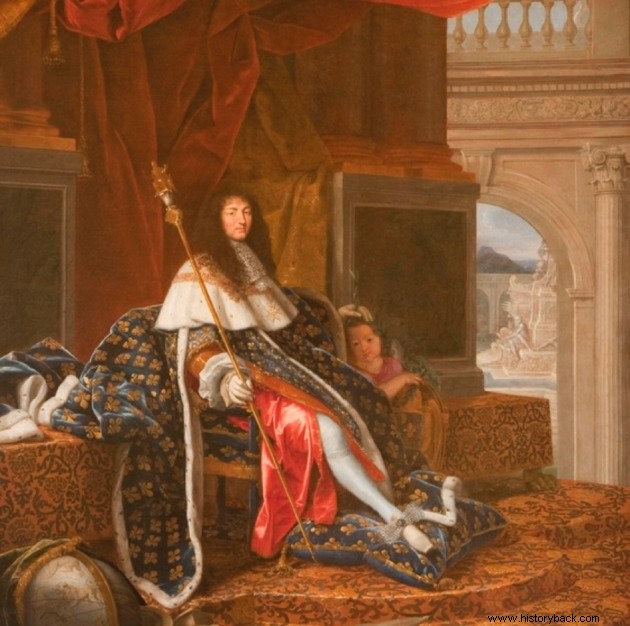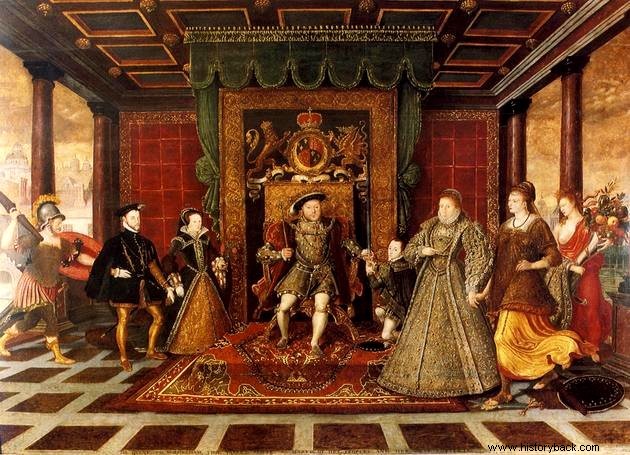Absolutist State is a political regime that emerged at the end of the Middle Ages.
Also called Absolutism is characterized by concentrating power and authority in the king and few collaborators.
In this type of government, the king is totally identified with the State, that is, there is no difference between the real person and the State that governs.
There is no Constitution or written law that limits royal power, nor is there a regular parliament that counterbalances the power of the monarch.
Origin of the Absolutist State

The Absolutist State emerged in the process of formation of the Modern State at the same time that the bourgeoisie was strengthened.
During the Middle Ages, nobles held more power than the king. The sovereign was just one more among the nobles and should seek balance between the nobility and his own space.
During the transition from feudalism to capitalism there was the economic rise of the bourgeoisie and mercantilism. Another political regime was needed in Central-Western Europe that would guarantee peace and the rule of law.
Therefore, the need arises for a government that centralized state administration.
In this way, the king was the ideal figure to concentrate political power and weapons, and ensure the functioning of business.
At this time, large national armies began to emerge and the ban on private armed forces.
See also:Formation of National MonarchiesExamples of Absolutist States
Throughout history, with the centralization of the Modern State, several nations started to form Absolutist States. Here are some examples:
France
It is considered the formation of the French state under the reign of Kings Louis XIII (1610-1643) and King Louis XIV (1643-1715) lasting until the French Revolution in 1789.
Louis XIV limited the power of the nobility, concentrated economic and war decisions on himself and his closest collaborators.
He carried out a policy of alliances through marriages that ensured his influence in much of Europe, making France the most relevant kingdom on the European continent.
This king believed that only "one king, one law and one religion" would make the nation prosper. In this way, he begins a persecution of Protestants.
See also:Old RegimeEngland
England went through a long period of internal disputes due to religious wars, first between Catholics and Protestants and later between the various Protestant currents.
This fact was decisive for the monarch to concentrate more power, to the detriment of the nobility.
The great example of English absolutist monarchy is the reign of Henry VIII (1509-1547) and that of his daughter Queen Elizabeth I (1558-1603) when a new religion was established and Parliament was weakened.
In order to limit the sovereign's power, the country goes to war and only with the Glorious Revolution establishes the foundations of the constitutional monarchy.
See also:English AbsolutismSpain
Spain is considered to have had two periods of absolute monarchy.
First, during the reign of the Catholic kings Isabel and Ferdinand, at the end of the 14th century, until the reign of Charles IV, which lasted from 1788 to 1808. Isabel of Castile and Ferdinand of Aragon ruled without any constitution.
In any case, Isabel and Ferdinand must always be attentive to the requests of the nobility of both Castile and Aragon, from where they came respectively.
The second period is the reign of Ferdinand VII, from 1815 -1833, who abolished the Constitution of 1812, re-established the Inquisition and took away some rights from the nobility.
See also:AbsolutismPortugal
Absolutism in Portugal began at the same time as the Great Navigations. The prosperity brought by Brazil's new products and precious metals were key to enriching the king.
The reign of Dom João V (1706-1750) is considered the height of the Portuguese absolutist state, as this monarch centralized all important decisions such as justice, the army and the economy in the crown.
Absolutism in Portugal would last until the Liberal Revolution in Porto, in 1820, when King Dom João VI (1816-1826) was forced to accept a Constitution.
Divine Right and the Absolutist State

The theory behind absolutism was "Divine Right." Conceived by the French Jacques Bossuet (1627-1704), its origin was in the Bible.
Bossuet considers that the sovereign is God's own representative on Earth and therefore must be obeyed. Subjects must heed your orders and not question them.
In turn, the monarch should be the best of men, cultivate justice and good government. Bossuet argued that if the king was brought up on religious principles he would necessarily be a good ruler, because his actions would always be for the benefit of his subjects.
See also:Constitutional MonarchyAbsolute State Theorists
In addition to Bossuet, other thinkers developed their theses on Absolutism. We highlight Jean Boudin, Thomas Hobbes and Niccolò Machiavelli.
Jean Boudin
The doctrine of state sovereignty was described by the Frenchman Jean Bodin (1530 - 1596). This theory argues that the supreme power was granted by God to the sovereign and the subjects should only obey him.
By this thought, the king is considered the representative of God and owes obedience only to Him. The only restriction on the king's power would be his own conscience and the religion that should guide his actions.
In this model of absolutist state, according to Bodin, there was nothing more sacred than the king.
Thomas Hobbes
One of the main advocates of absolutism was the Englishman Thomas Hobbes (1588-1679). Hobbes defended, in his work "Leviathan ", initially, human beings lived in the state of nature, where there was a "war of all against all".
In order to live in peace, men signed a kind of social contract, they would renounce their freedom and submit to an authority.
In exchange, they would receive the security offered by the state and the guarantee that private property would be respected.
Nicholas Machiavelli
The Florentine Niccolò Machiavelli (1469-1527) summed up in his work "The Prince" the separation of morals and politics.
According to Machiavelli, the leader of a nation should use all means to stay in power and govern. Hence, he describes that monarch can launch means such as violence in order to ensure his permanence on the throne.
See also:Transition from Feudalism to Capitalism